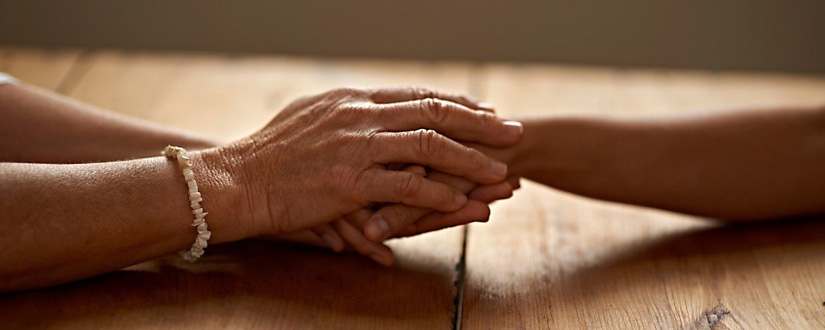How many of us have told either our children or children in our care to behave themselves? I had said it countless times until, at some point, one of my children asked, "What does that even mean?" I'll be honest, I didn't have an answer. Did I mean for them to obey the laws set forth by our local government? Was I asking them not to fight with their siblings or to keep the noise level to a minimum? Perhaps I was requesting that they not do anything that would reflect poorly on my parenting choices. These days I'm more specific with my instructions. "Be kind and make wise choices. Use good judgment and discernment."
Paul's writings have always appealed to me because he's straightforward and clear. "Speak the truth" (Eph. 4:25). "Do everything without grumbling and arguing" (Phil. 2:14.) "Just as the Lord has forgiven you, so you are also to forgive" (Col. 3:13). It's so refreshing when someone says what they mean and means what they say. So, when Paul told the Corinthians how they were to behave in the world, he also explained what he meant. "We have conducted ourselves in the world, and especially toward you, with godly sincerity and purity, not by human wisdom but by God's grace" (2 Cor. 1:12).
Sincerity can be really hard to find in the world. I still remember the confusion my daughter felt when an actress she had grown to admire behaved inappropriately on a talk show and then mocked those who thought she was as sweet as the character she portrayed on TV. It was hurtful to realize the young girl she respected was all a facade. Unfortunately, this wasn't her last encounter with people who proved to be disingenuous.
Another daughter once found herself in a position where she was the one tempted to be insincere in order to appeal to a certain group of kids. My advice to her was simple: Whatever she pretended to be in order to be accepted, she would have to continue pretending to be in order to remain accepted. That, my friends, is an exhausting and empty way to live. The temptation is strong for kids, and adults alike, to be what the world wants us to be for fear of being left out.
May we never compromise how God has called us to live in order to fit in, be accepted, or be invited.
Stacey & Michael Edwards
As Paul looked back at the way he had lived, ministered, and shared the gospel, he could say, "I conducted myself with godly sincerity." Paul was transparent with the recipients of his letters regarding the trials and temptations he faced. He didn't want them to be uninformed regarding the difficulties of living a godly life. (See 2 Cor. 11:23-27.) He confessed he had a thorn in the flesh that was a constant source of struggle and torment. (See 2 Cor. 12:7.) Who among us lives with such transparency and sincerity?
What would it look like for all followers of Christ to live with that level of genuineness? In this world, where every photograph is filtered and anything hinting at reality is cropped out of sight, it would take a holy boldness to live as Paul did. And that is exactly what he told the Corinthians. His sincerity was a godly sincerity that he was only able to maintain by God's grace, and it is the same for us. We must use wisdom and discernment when sharing our personal thorns in the flesh. Sincerity doesn't mean sharing every struggle with every person. Sometimes it just means not pretending we don't struggle.
It's been said that integrity is doing the right thing when no one is watching. Sincerity looks a lot like that too. It isn't easy to simply be ourselves in every scenario without worrying about judgment or rejection. But, by the grace of God, we too can conduct ourselves in the world with godly sincerity. We can teach our children to be who God created them to be by modeling that behavior ourselves.
May we never compromise how God has called us to live in order to fit in, be accepted, or be invited. In the end, Paul's boast wasn't that he had the most friends, followers, or fans. A life of godly sincerity was his legacy.
Show, Don't Just Teach
No one studies our lives more than our children. It's vital that they see us living out a sincere and genuine faith. They will certainly see our sins, so they must also see our repentance. There will come a time when they witness us being wronged by someone. We must be certain they also see us forgive. When they see us fall, they need to see us also rise and try again.
We often fear to make mistakes in front of our children as if they need perfection from us. But no one can relate to perfection, and it makes the fall from the pedestal that much harder to witness. Let's show them a life of godly sincerity. Scripture reminds us: "I am not saying this as a command. Rather, by means of the diligence of others, I am testing the genuineness of your love" (2 Cor. 8:8).
"Now the goal of our instruction is love that comes from a pure heart, a good conscience, and a sincere faith" (1 Tim. 1:5).
"Since you have purified yourselves by your obedience to the truth, so that you show sincere brotherly love for each other, from a pure heart love one another constantly" (1 Pet. 1:22).
This article is adapted from HomeLife Magazine.
Read more articles written by leading Christian authors and teachers!
